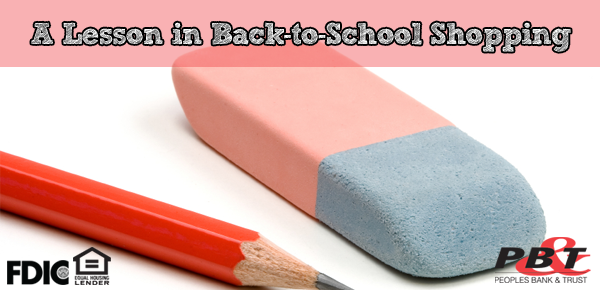
These accounts can help set you up for long-term success, even if you’re only starting your first job.
Whether you are just getting your first job, or you recently accepted your first full-time position, now is a great time to reevaluate or open a variety of bank accounts.
Assuming that you are starting from scratch, let’s start with the basics:
Checking Account – As you start to receive paychecks, you will need a place to safely store your money, and a checking account is just the place to do so. Not only can you safely keep your money in a checking account, but a checking account can offer a variety of services:
- A checkbook and an ATM/Debit Card for making everyday purchases.
- Some checking accounts offer interest on your account to help your money grow.
- Many employers utilize a direct deposit paycheck system where they pay your checking account directly, eliminating the need to always cash out your paychecks.
Savings Account – Whereas a checking account is great for everyday use, your savings account is used for, well, saving money! There are a variety of savings account options out there for you to choose from, but your basic savings account will include certain benefits:
- Safely store larger amounts of money as you begin to build wealth.
- Most savings account have some sort of interest payments to help your money grow.
- Even though your savings account is not used for constant use, you still have easy access to your savings account.
Retirement Accounts – This is probably not the first time you’ve heard this and it probably won’t be the last: the sooner you start saving for retirement the better! If you just started a full-time position, your company may offer a 401(k). Take advantage of this retirement savings account through your employer and devote as much as you can to your 401(k) out of each paycheck.
If your employer does not offer 401(k) services, consider opening an Individual Retirement Account (IRA) with your local bank. Peoples Bank & Trust offers a couple IRA options to make saving for retirement easy and hassle free.
Long-Term Savings Accounts and Investment Accounts – A typical savings account can hold large amounts of money and is pretty easy to access if you need to do so. A long-term savings account, such as a certificate of deposit (CD), offers a place for your money to grow over a long period of time. A CD is more of an investment than a savings account and is a good idea to think about when your finances are a little more mature.
The bank accounts that you need depend on your stage in life. If you recently started a job and are just beginning to accumulate wealth, start with a checking account and go from there. Remember, Peoples Bank & Trust is here for you along the way!
Peoples Bank & Trust
Equal Housing Lender
Member FDIC




